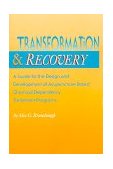Resources for Acupuncture in Chemical Dependency Treatment and Recovery

There are other methods of paying for the acupuncture component:
Client fees: Many clinics charge for all services on a sliding scale, in which case the average cost of the acupuncture may be factored in. Programs might also consider opening the acupuncture clinic to the community on a sliding fee basis, or they may elect to have a separate smoking cessation or other target program at a higher fee, and clients of that program may pay fees at a level that underwrites the basic costs of the acupuncture in which other program clients participate. Non-profit or public programs for whom cost reporting is required should be wary of parity issues (e.g. five clients paying $20 each for the acupuncture would cover the costs for 20 other non-paying clients). Agencies that operate multiple programs should note that the same acupuncture opportunity may be designed to serve clients in more than one program.
State or Federal block grant funds: Local or state funding authorities and their advisory groups can be educated that authorizing acupuncture as a legitimate program cost can reduce relapse and increase client retention rates.
Grants: Private grant awards from such sources as the Robert Wood Johnson Foundation and United Way, and public sources including HUD, NIJ, CDC, CSAT, and some state departments of corrections have funded acupuncture as a component of a larger treatment project. Local program officials can be encouraged to include acupuncture in grant development initiatives.
previous - Read
FAQs in Sequence - next
Index of Articles - Links - Home
scroll down for more FAQs
How many clients can be treated at once?
How often do clients need to be treated?
How long to clients have to keep having treatments?
Does it matter what time of day the acupuncture is provided?
What
national organizations support acupuncture in treating addiction? What
resources are available to support us if we decide to do it?
Does
the acupuncture program have to include herbs or nutritional supplements?
What
is the history of how acupuncture began to be used in chemical dependency
treatment?
What
does the acupuncture clinic look like exactly?
How
much space and extra equipment will we need to do it?
How
do we clean or dispose of the needles after they are used?
How
does acupuncture fit with drug testing?
How
do we find and train people to do the needling?
Could
we just try it experimentally to make sure it's a good fit for us?
What
technical assistance will be required to start and maintain an acupuncture
component?
Is
it compatible with harm reduction?
Is
it compatible with 12-Step or abstinence-based treatment approaches?
Is
it appropriate for mandated or court-referred clients?
Is
it appropriate for adolescents?
Is
it appropriate for pregnant women?
Is
it appropriate for people with co-morbid psychiatric problems?
Is
it appropriate for people with HIV/AIDS?
Is
it appropriate in methadone programs?
Is
it appropriate in residential programs?
What
training is required for current program and administrative staff?
What are the steps we should take to add an acupuncture component?